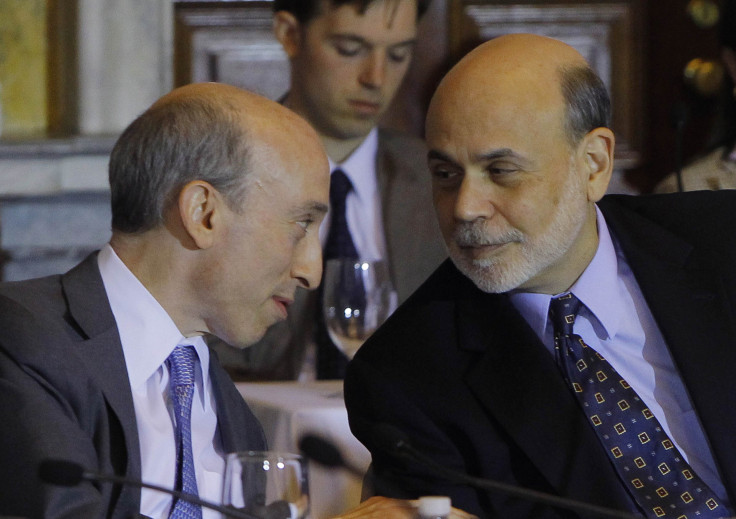Politically Connected Banks More Likely To Receive Emergency Loans From The Fed During Crisis, Study Finds

Banks with political connections were more likely to receive emergency loans from the Federal Reserve during the financial crisis, a study released Thursday by the Mercatus Center of George Mason University found. However, the study did not name specific banks that it concluded had benefited from pre-crisis Fed lobbying.
While only 1.5 percent of banks that did not receive a loan from the Fed had a politically well-connected employee, 15 percent of firms receiving support from the Fed employed politically connected people. The banks that received emergency loans also spent 72 times more on lobbying in the decade before the crisis than banks that did not receive loans, the study's author, Benjamin Blau of Utah State University's Department of Economics and Finance, found.
Blau based his study on data from the Government Accountability Office's July 2011 audit of the Fed, the first known audit of the Fed since its creation 100 years ago. That audit showed that the Fed provided $16 trillion in short-term assistance to firms both domestic and abroad during the financial crisis, and by the end of 2008, outstanding loans topped $1 trillion.
The banks that lobbied the Fed or had politically connected employees were more likely to receive emergency loans and received larger loans on average, even when controlling for bank size and not including firms listed as “too big to fail” by the Financial Stability Board.
Additionally, banks that employed politically connected individuals were generally in debt to the Fed for longer than those without politically connected employees.
Blau believes explaining these connections will require more research, but he does not believe the Fed intended to provide political favors to banks with the most connections. He gives three possible explanations for his findings.
First, it may be that the Fed had more information about politically active banks, so awarding those banks loans was an easier decision. Second, politically active banks were more likely to seek loans from the Fed. Third, having ties to those in power may push politically connected firms to take more risks that then prompt the Fed to act.
© Copyright IBTimes 2024. All rights reserved.





















